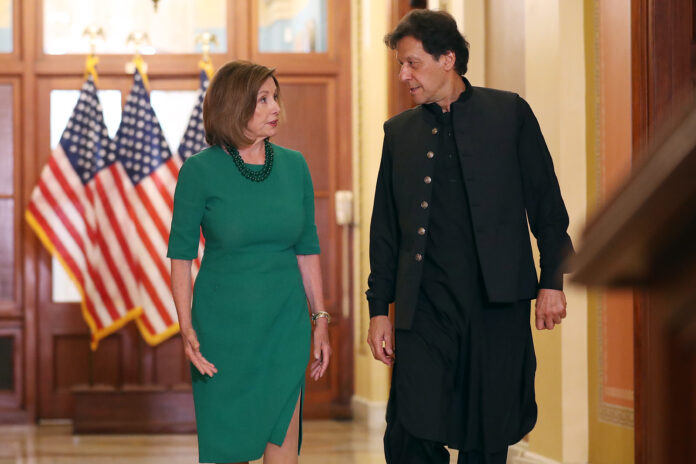Author: Marvin G. Weinbaum & Syed Mohammed Ali
Affiliation: Middle East Institute, Georgetown University
Organization/Publisher: Middle East Institute
Date/Place: March 2020/ U.S.
Type of Literature: Policy Paper
Number of Pages: 22
Link: https://www.mei.edu/publications/seizing-moment-change-pathways-sustainable-us-pakistan-relationship
Keywords: US, Pakistan, Kashmir Security, China, Afghanistan, India, Bilateral Relations, CPEC
Brief:
Authored by two experts on international relations, this policy paper brings together several recommendations for sustainable bilateral relations between the United States and Pakistan. The paper describes relations between the two geographically distant countries as historically “unstable, waxing and waning, climbing to heights of interdependence and sinking to mutual recrimination.” Although there are serious divisions of interests between Pakistan and the US, the authors believe that there are various ways toward boosting their bilateral relationship, but that improvement is unlikely to come about quickly. The experts refer to conflicting national interests that are likely to persist, however they insist that security issues alone must not hold hostage the other aspects of bilateral relations. The authors identify Pakistan’s geographical location as bringing the US’ geopolitical thrust on it because of Washington’s animosity with Iran, Russia and China. Upon a withdrawal of foreign occupational forces (the US and allied forces) from Afghanistan, the paper suggests more normalization and imminent growth of Pakistan-US relations. While the paper describes the Kashmir dispute as a “major issue of concern for regional security in South Asia,” the experts say that it has emerged as a challenge for the US, viz-a-viz conflict resolution between India and Pakistan. Warning of a grave danger because of Kashmir, the authors maintain the US must remain prepared to assume an active role in crisis management and mediation. Besides different recommendations on security-related issues, the authors suggest the US “should be able to find opportunities in CPEC [China-Pakistan Economic Corridor] itself.” While the US remains the top critique of China’s Belt and Road Initiative, the paper implies that the US should support Pakistan to “lessen Pakistan’s economic reliance on China.”
By: Riyaz Ul Khaliq, CIGA Non-Resident Research Associate




